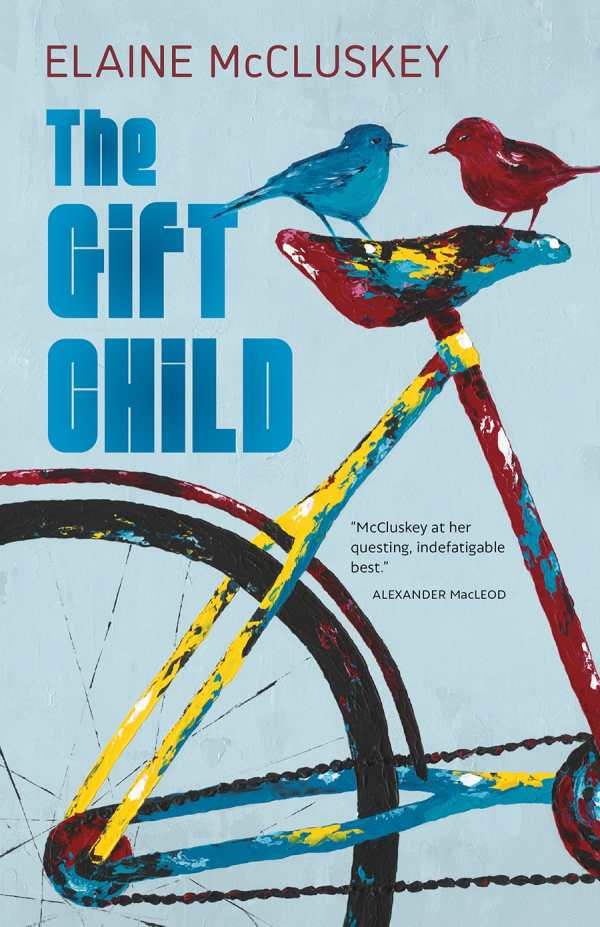The Gift Child
In Elaine McCluskey’s novel The Gift Child, a former news photographer explores her genealogy following a mysterious disappearance.
When her cousin, Graham, vanishes, Harriet is drawn back into the orbit of her narcissistic father, Stan. As the family bands together in search of Graham, Harriet digs into their dysfunctional history. At the same time, she is blatant about her intentions to write a family memoir while participating in a writing workshop.
The Gift Child proceeds on the irony of directionlessness. In their search for Graham, Harriet’s family follows a variety of false leads buried in the opacity of police procedurals. That her narration is part of a memoir about the messiness of truth is undisguised; she acknowledges that it is an undifferentiated mass of lies, multiple truths, secrets, and memories warped by time. This purposelessness is wrought beautifully in Harriet’s profuse description of sea-blown settings: Pollock Passage is “a smattering of white wooden houses, a working-class Atlantis. Some dropped on the shoreline, some further inland.” Metacommentary arises from Harriet’s lengthy inclusions of moments from the workshop where she first conceives of talking about her father and Graham.
Harriet’s self-deprecating exploration of decline and loss runs alongside this work. Stark realism results from her admission that she and her father are both people at the end of their careers and lines. Stan, a self-aggrandizing man with a public, successful profession in television broadcasting, denies that he is fading into irrelevance. Divorced from a man whom she stole from another, Harriet remembers her personal, now inaccessible, high point producing images from all walks of life during her time as a newspaper photographer before being laid off.
Suffused with a pervasive sense of loss, The Gift Child is a novel about how truth is created, not inherent, within the context of a collective family loss.
Reviewed by
Isabella Zhou
Disclosure: This article is not an endorsement, but a review. The publisher of this book provided free copies of the book to have their book reviewed by a professional reviewer. No fee was paid by the publisher for this review. Foreword Reviews only recommends books that we love. Foreword Magazine, Inc. is disclosing this in accordance with the Federal Trade Commission’s 16 CFR, Part 255.

